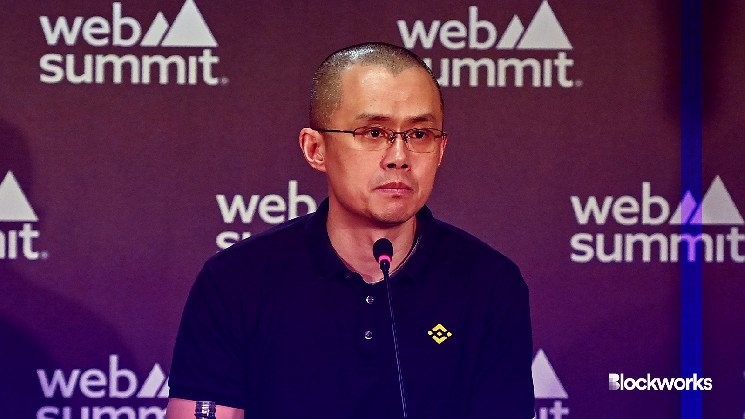The US government filed to modify former Binance CEO Changpeng Zhao’s bond ahead of his sentencing.
“The original bond conditions were based on the expectation that Zhao would be living in the [United Arab Emirates], and so they did not address matters such as custody of his passports and notifications to Pretrial Services related to his travel plans and residence,” the government wrote in a filing Friday.
The US government wants Zhao and his defense team to inform the government of his travel plans. Zhao’s team pushed back on the modification, arguing that it hasn’t yet been an issue for the former CEO to travel throughout the US. However, the government is concerned about him going to the US-Canada border.
Zhao is also a Canadian citizen.
Read more: Here are the details of Binance and Changpeng Zhao’s plea deal
“The defense says this requirement is unnecessary because Zhao’s travel ‘has not been an issue to date.’ But something that “has not been an issue to date’ can become an issue in the future,” the filing said.
The government’s lawyers clarified that Zhao doesn’t need to ask for permission to travel across the US, just notice, so that the government can have the “opportunity to raise the matter with the court” if it needs to.
As part of the modification order — initially filed late last month — the US also asked that Zhao surrender his Canadian passport to a “third-party custodian employed and supervised by his counsel of record.” This would also prevent Zhao from applying for or receiving a new passport.
Read more: The US watered down crypto when it ousted Binance’s Zhao — and that’s okay
Zhao would also be required to maintain his residence and would have to get approval from “Pretrial Services” before changing his residence. Zhao’s team objected to the government’s request, but the government argued that it’s a “standard, commonsense requirement” and Zhao is not exempt from it.
The former executive’s sentencing is set for April 30, after a delay pushed the date back. At the end of last year, he asked to be able to travel back to the UAE — where his family lives — but the request was denied by the court due, in part, to the lack of an extradition treaty between the US and the UAE.
 blockworks.co
blockworks.co
